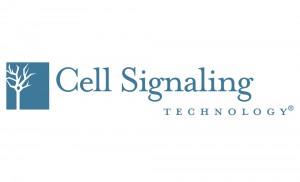 As the former Chief Counsel and Director of Intellectual Property & Licensing at Cell Signaling Technology, Inc., James Cullem reflects on the pivotal issuance to the company of a U.S. patent covering a vital class of Context-Independent and Motif-Specific Antibodies.
As the former Chief Counsel and Director of Intellectual Property & Licensing at Cell Signaling Technology, Inc., James Cullem reflects on the pivotal issuance to the company of a U.S. patent covering a vital class of Context-Independent and Motif-Specific Antibodies.
A Gathering of Experts: Hello and thank you for joining us this morning.
James Cullem: Glad to be here with you as well.
A Gathering of Experts: What does this patent and portfolio mean for Cell Signaling Technology?
James Cullem: The patents on this novel and powerful class of antibodies validates the company’s leadership role in developing and commercializing new reagents that are advancing signal transduction research to elucidate diseases like cancer. And, of course, as a competitive market advantage, it provides the company with a highly valuable market exclusivity in leveraging this technology towards diagnostics and therapeutics development.
A Gathering of Experts: Why is signal transduction research such an important aspect of the medical community?
James Cullem: By comprehending the wide array of cellular signaling defects that drive cancer and other diseases, researchers have the hope of drawing ever closer to their goal of personalized medicine for all patients. As we obtain a better map of such signaling defects, we will be better able to diagnose and treat such diseases, on a patient-by-patient basis.
A Gathering of Experts: Where is Cell Signaling Technology’s current Motif-Antibody patent portfolio focused?
James Cullem: The portfolio is focused in two areas: First, patents covering the core and novel class of Motif-Specific and Context-Antibodies themselves. Second, patents covering powerful discovery platforms, like PhosphoScan®, that employ the antibodies in methods that allow global post-translational modification snapshots to support biomarker, diagnostic, and therapeutic development efforts.
A Gathering of Experts: Besides the United States, does this patent extend to any other parts of the world?
James Cullem: To my knowledge, the company has extended its core patent coverage to several important foreign markets, including Japan, Canada, and Europe.
A Gathering of Experts: In your opinion, how has Cell Signaling Technology, Inc. changed the medical industry?
James Cullem: Cell Signaling Technology has evolved over the past 15 years to become a prominent leader in the development of novel reagents and discovery methodologies that are helping elucidate proteomics and epigenomic events in cancer and other diseases. The company’s contributions are impacting on basic research efforts, as well as on diagnostic and therapeutic development efforts. Additionally, the company’s internal tumor biology programs have yielded a number of important discoveries that have impacted on the medical field and patient lives, most notably the discovery and commercialization of the EML4-ALK fusion translocation, which is now routinely used as a companion diagnostic for the treatment of certain types of lung cancer.
A Gathering of Experts: We wish you the best of luck on your future endeavors. Thank you for joining us today.
James Cullem: Much appreciated!
A business entrepreneur and patent attorney, James Cullem is a recognized expert in intellectual property, who has served as Chief Counsel to a number of prominent biotech companies, and as Of Counsel to a number of prominent law firms.

Speak Your Mind